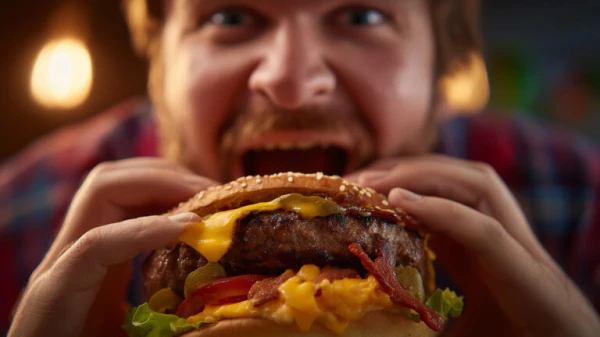
The visual aspect also plays an important role: recognizable packaging, smells from fast food restaurants, advertisements, and even photos.
Even those people who carefully monitor their diet sometimes cannot resist an appetizing burger or fries. It seems that the diet is already established, salads are prepared, yet at some point, the hand reaches for fast food. Why does food that many consider unhealthy so often overcome willpower and habits? The answer lies not only in the power of marketing but also in how our brains are structured and the emotions we associate with such products.
The Brain and the Reward System
Scientists note that foods high in fat, salt, and sugar activate the brain's reward centers. This triggers the release of dopamine—a neurotransmitter associated with motivation and pleasure. This reaction has evolved over time: once, calorie-dense food was a rarity, and the body learned to remember sources of energy. The modern world has made such products available at any time, and the brain still reacts to them in a particularly vivid way. The repeated experience of pleasure from familiar tastes forms stable eating habits.
Fast food is closely linked to the rhythm of life in big cities—it is always at hand, requiring minimal time and effort. For many, it has become "food on the go" or an emotional anchor—a reminder of childhood, trips, or family gatherings. The visual aspect also plays an important role: recognizable packaging, smells from fast food restaurants, advertisements, and even photos on social media activate those very areas of the brain, creating a desire to snack on something familiar and simple.
Emotions and Stress
Psychologists explain that the craving for high-calorie food intensifies during moments of stress, fatigue, or bad mood. Such products provide a quick feeling of satiety and temporary emotional comfort. However, experts emphasize that it is incorrect to talk about "food addiction"—international diagnostic systems do not recognize it as a separate disorder. Rather, it is a combination of physiological reactions, habits, and cultural attitudes.
How to Maintain Balance
Nutrition specialists advise not to completely forbid oneself fast food but to view it as an occasional pleasure. This approach reduces the risk of breakdowns and helps maintain psychological comfort. It is beneficial to establish a regular meal schedule, not skip breakfasts and lunches, and listen to signals of hunger and satiety. The more stable the diet, the fewer impulsive decisions like spontaneously ordering a burger.
<iframe width="560" height="315" src="https://www.youtube.com/embed/C1lbCBadPjM?si=9ixtS6j6Ml6K5-s4" title="YouTube video player" frameborder="0" allow="accelerometer; autoplay; clipboard-write; encrypted-media; gyroscope; picture-in-picture; web-share" referrerpolicy="strict-origin-when-cross-origin" allowfullscreen></iframe>












